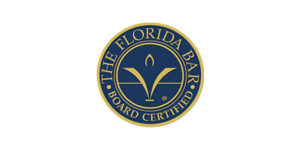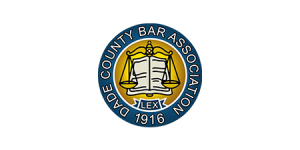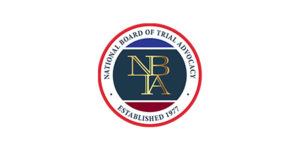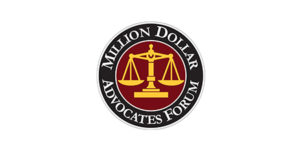







School Liability: What You Need to Know If Your Child Is Injured at School
Panter, Panter & Sampedro
Parents send their children to school every day, assuming that the school will provide a safe environment for them to learn. However, sometimes schools don’t fulfill all their responsibilities, resulting in unsafe spaces where an accident is bound to happen at some point.
If your child suffered an injury on school premises and you believe negligence on the school’s part is the cause, the personal injury lawyers of Panter, Panter & Sampedro can help you navigate the legal process and ensure you get the compensation you deserve for your medical expenses and your child’s pain and suffering.
Common Causes of School Injuries
School injuries may be physical or emotional and can result from negligence, malice, or reckless behavior by school officials or students. The most common causes of these school injuries include:
- Faulty playground equipment.
- School negligence during sports events. This usually doesn’t include the event itself (e.g., a football player’s parent usually can’t sue the school if the child suffers an injury during the game).
- Lack of supervision.
- Violence, bullying, or sexual harassment inflicted by students or adults.
- Slip and falls.
- Vehicular accidents involving school buses.
Common Types of School Injuries
Whether due to negligence, malice, or reckless behavior by school officials or students, these are the most common types of injuries your child may experience in school:
- Cuts and bruises
- Sprains and strains
- Fractures
- Head injuries
- Dislocations
- Burns
- Dental injuries
- Lacerations
- Eye injuries
Special Relationships
Florida recognizes that the relationship between a school and a minor student qualifies as a special relationship imposing a heightened duty of care upon the school. This imposes upon schools a certain duty of care which includes reasonable supervision.
Are Schools Liable When Your Child Suffers an Injury on the Premises?
When a child gets injured at school, parents naturally worry about their child’s well-being and the school’s responsibilities. While some accidents are beyond the school’s responsibilities, sometimes an injury is directly or indirectly the result of school negligence.
Some of the cases where schools may be liable for your child’s injuries include:
- Dangerous conditions: Schools are liable for injuries caused by unsafe property conditions such as faulty playground equipment, slippery floors, unsanitary conditions, and toxic materials.
- Inadequate supervision: Schools must supervise students adequately to prevent harm. This includes hiring enough staff to monitor students and ensuring staff are appropriately vetted.
- Foreseeable harm: Schools are liable if they fail to take action against known dangers, such as not fixing a defective playground ride.
- Bullying and assault: If a school knows of a bullying situation and does not take reasonable steps to prevent it, it may be liable for resulting injuries.
- Negligent hiring: Schools are responsible for failing to conduct proper background checks and hiring staff with histories of inappropriate conduct who cause harm.
However, keep in mind that schools can usually not be liable for injuries that take place on school grounds outside school hours or school-sponsored events, especially if the school took measures to prevent students from accessing the school outside regular hours.
My Child Was Injured at School. What Steps Should I Take?
If your child suffers an injury on school premises and you suspect the school may be liable due to negligence, follow these steps to increase the chances of a successful case.
1. Seek Medical Attention
The first and most crucial step is ensuring your child receives medical care. Getting them professional care as soon as possible addresses immediate health concerns and creates a medical record of the injury.
2. Report the Injury
Inform the school administration about the incident as soon as possible. Provide detailed information about how the injury occurred.
3. Document Everything
Record all related documents, including medical reports, school communication, and incident reports. This documentation is essential for any future legal actions.
4. Gather Evidence
Collect evidence related to the injury, such as photographs of the accident scene, witness statements, and any relevant school policies or maintenance records.
5. Consult a Personal Injury Attorney
If you believe the injury was due to negligence, seek advice from a personal injury attorney. A personal injury with experience in school liability cases can help you understand your rights and guide you through seeking compensation.
Schools must provide a safe learning environment, and you, as a parent, have a right to expect as much. An experienced injury lawyer can fight for your best interests and enforce your and your child’s rights in school negligence cases.
Challenges of School Liability Cases
Navigating school liability cases can be complex due to various legal hurdles and requirements. Understanding these challenges is crucial for parents seeking justice for their injured children.
The following are some of the parents’ most common challenges in these cases.
Sovereign Immunity
Sovereign immunity protects public entities, including schools, from certain types of legal liability. This doctrine means that schools, as government institutions, are often immune from lawsuits unless they consent to be sued or specific exceptions apply.
Overcoming sovereign immunity requires demonstrating that the school’s actions fall under these exceptions, which can be a complex and challenging legal process.
Proving Negligence
To hold a school liable, you must prove that the school was negligent in protecting the child. Proving negligence involves showing that the school failed to provide a safe environment or adequate supervision, directly leading to the injury.
Gathering sufficient evidence, such as witness statements, maintenance records, and incident reports, is essential but can be difficult, especially when dealing with resistance from the school.
Statute of Limitations
The statute of limitations sets a deadline for filing a lawsuit, varying by state and the type of claim. For example, the statute of limitation for personal injuries In Florida is four years (Title 8, Chapter 95, § 95.11).
Parents must act quickly to ensure their claims are filed within this timeframe, as missing the deadline can result in losing the right to seek compensation. This timeline adds pressure to an already stressful situation.
Panter, Panter & Sampedro Can Help You if Your Child Was Injured in School
The personal injury attorneys at Panter, Panter & Sampedro have successfully represented families impacted by injuries that took place in school as a result of lack of supervision and negligent hiring.
If your child experienced an injury on school premises, you have a right to make a claim and get compensation for your medical expenses and pain and suffering. Our experienced lawyers can investigate whether school negligence caused the accident and fight for your family’s rights.
Contact us for a free, no-obligation case review today.
